Editor’s Note: I’m very pleased to announce that this article won a Silver Award in the North American Travel Journalist Association’s annual competition!
A day in Parco Naturale Regionale Dune Costiere (Regional Nature Park of Coastal Dunes)
Many places throughout the Puglia region of Italy have vistas of vast landscapes of ancient olive trees on the plain with the blue Adriatic Sea beyond. It is an area of pastoral beauty that holds rich agricultural, recreational, cultural, and historical attractions. On a day trip organized for us by Parco Naturale Regionale Dune Costiere (Regional Nature Park of Coastal Dunes), Mr. TWS and I got to enjoy a tour of some of the highlights of this large park and learn about its mission and activities. I previously included the activities during our day at the park in my post about visiting Puglia in the off season, but I’d like to share more photos and information as the park is such an important part of the region’s character, natural beauty, and ecosystems.
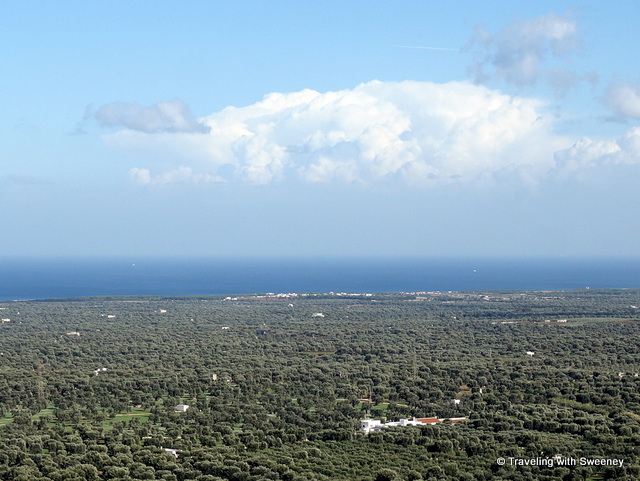
Vast expanses of olive groves to the Adriatic Sea
Located in Puglia between the cities of Fasano and Ostuni and near some of our favorite towns in Puglia (the baroque city of Martina Franca, beautiful Cisternino, and “the round town” of Locorotondo), Parco Naturale Regionale Dune Costiere is a protected natural area with numerous habitats, such as rare vegetation, juniper trees, dunes, and pools behind the dunes hosting migratory birds.
Getting in touch with nature at Dune Costiere
We had a full day of seeing sights within the park visiting the coastal dunes, organic fish farms, working mills, and farmhouses that respect the location’s environmental and cultural resources.
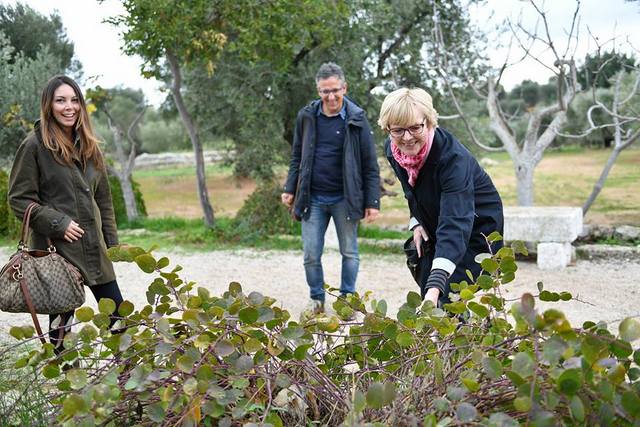
Examining the flora with Elena Benassi and Gianfranco Ciola at Antica Brancati — Photo by Federica Donadi
“Live your park”
Visitors to Parco Naturale Regionale Dune Costiere are encouraged to “Live Your Park”, to fully experience the area taking advantage of tours, workshops, and environmental education activities that are available through the park and its local partners. The park and its associated farms and business entities aspire to help tourists and visitors to the area gain a deeper understanding of the area’s attractions and its natural bounty.
Led by Dune Costiere Director Gianfranco Ciola, the park has striven to educate the public and promote good practices of environmental sustainability, particularly those regarding tourism. Parco Naturale Regionale Dune Costiere’s mission is to protect the natural resources, agricultural bounty, and archaeological sites from the coastal dunes to the wetlands to the inland plains farms and olive groves while promoting and enabling their use by the public. Their aim is to encourage enjoyment of their beautiful and rich natural areas while respecting the rich resources and traditions and being in harmony with nature. The park offers many opportunities to enjoy the bounty of Puglia and plays an important role in the area’s environmental protection and sustainable economic development.
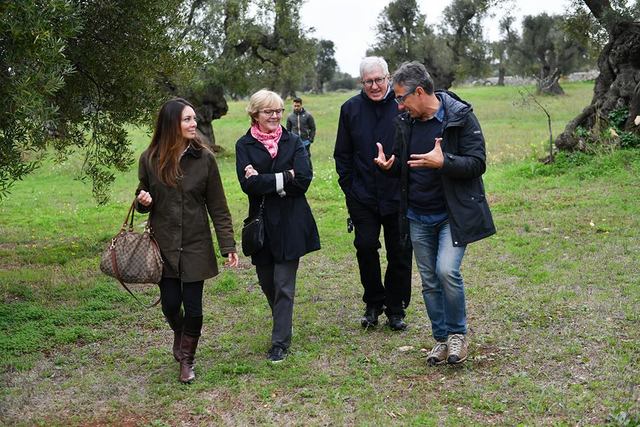
A walk in the park with Elena Benassi, Valerio Palasciano, and Gianfranco Ciola — Photo by Federica Donadi
With a network of cycle paths connecting the environmental and cultural resources of the park, slow tourism is a focus year-round with hiking, nature walks, bicycles, electric cars, horseback riding, and canoes. The park’s tourism partners provide tours that take bicyclists on paths and quiet side roads alongside or through olive groves and fruit orchards (of fig, almond, and pomegranate trees). The tours also feature stops at farmhouses to sample delicacies or purchase products of the region, such as extra virgin olive oils. We visited on a rainy November day, so we didn’t take a bike tour around the park, but that is something I would love to do next time.
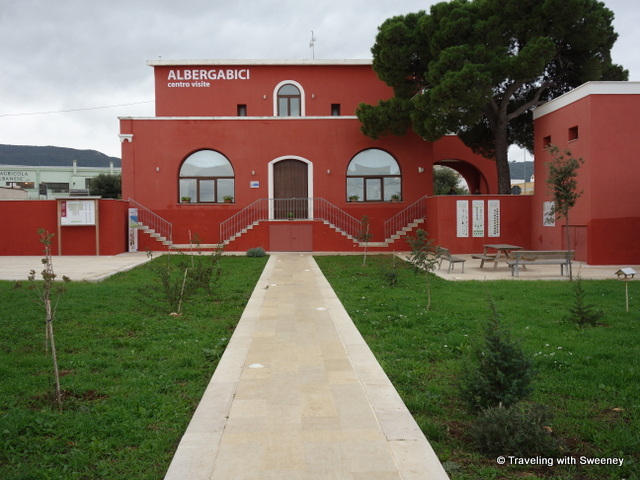
Albergabici at Dune Costiere Park
The park offers bicyclists many services, day tours, rentals, and accommodations for bicyclists. The Albergabici is a hostel with 18 beds. It offers bike rental and repair services for bike tourists on the area’s extensive trail system or those passing through the park on longer journeys. There are 14 long distance cycle routes in Italy, with 15,000 km of the roads in Puglia. The old Roman road, Via Traiana, that runs through Parco Naturale Regionale Dune Costiere is part of Cycle Route No. 6 of BicItalia (also called the Adriatic Way).
The land
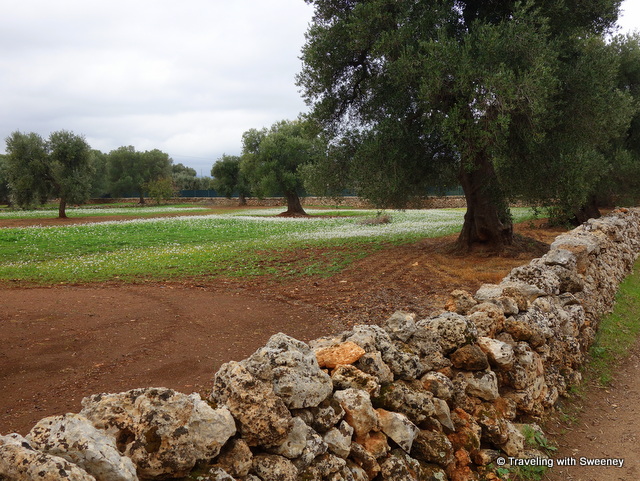
Ancient olive trees in the groves of Dune Costiere
Parco Naturale Regionale Dune Costiere develops and maintains cooperation with the farmers at masserie (plural of masseria, a self-sustaining, fortified farm estate established between the 16th and 18th centuries) within the park’s boundaries. The park and the masserie cooperate in their efforts of sustainable production and promoting tourism and share the mission of protecting the area’s biodiversity and culture.
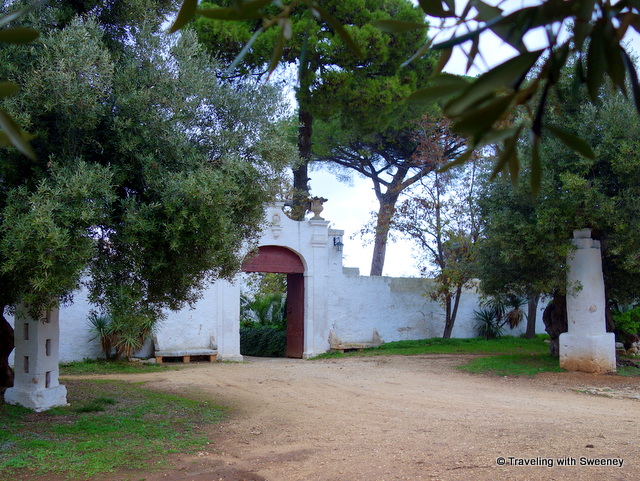
Antica Masseria Brancati
With our park guides, we strolled the olive groves of Antica Masseria Brancati, where ancient trees (some over 3,000 years old like the one shown below) still produce olives alongside the younger trees on the property’s 30 hectares (about 74 acres). We also got to pick some olives right off the trees. (I could have done that all day once I got a rhythm going.) The old gnarly trees grow twisting their trunks (where we were told they keep their energy) are a real sight to see up close.
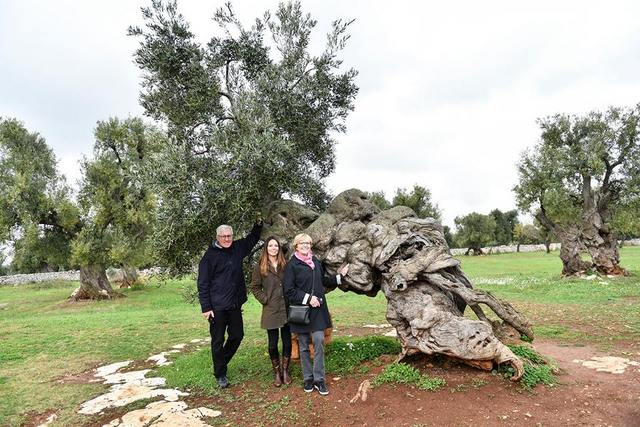
Over 3,000-year-old olive tree still producing olives at Antica Masseria Brancati — Photo by Federica Donadi
As you can see from the photo below in which I’m standing inside of an olive tree trunk, some of the trees are enormous.
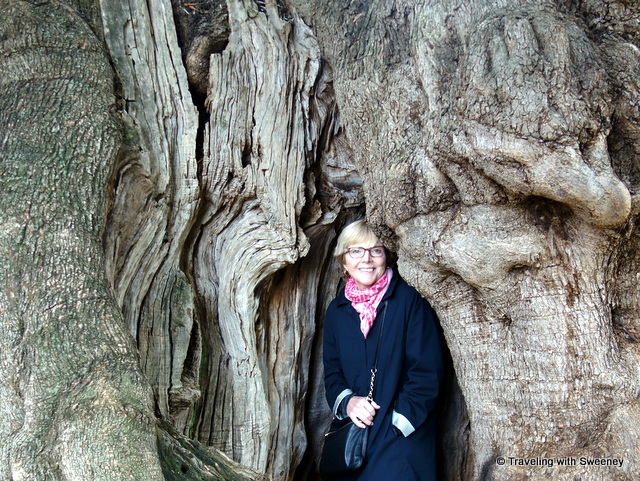
Hugged by an ancient olive tree at Antica Masseria Brancati
At the masseria, we also sampled their delicious extra virgin olive oils. It’s interesting how similar to wine tasting this process can be, with each oil having its own aromas and flavor — some subtle, others quite pronounced.
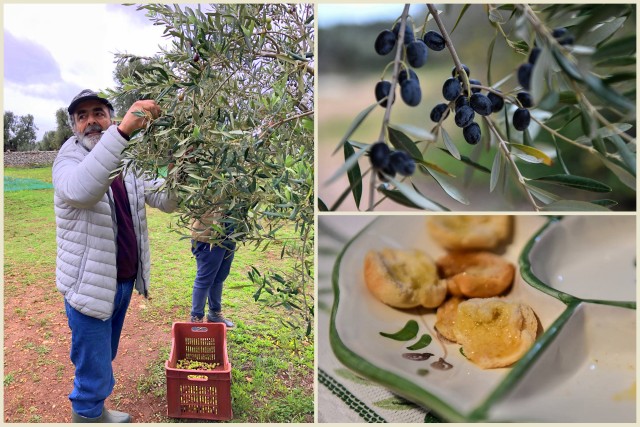
Corrado Rodio of Antica Masseria Brancati; olives and olive oil tasting — photos on the right by Federica Donadi
A must see at masseria is the ancient underground mill where the remnants of olive oil production methods from Roman times through present day are on display (as well as other artifacts of old times), such as shown below. The stables and workers’ sleeping quarters of centuries ago were also located here. There were many of these underground mills in this area because of its proximity to the Via Traiana for transportation of the oil to commercial ports.
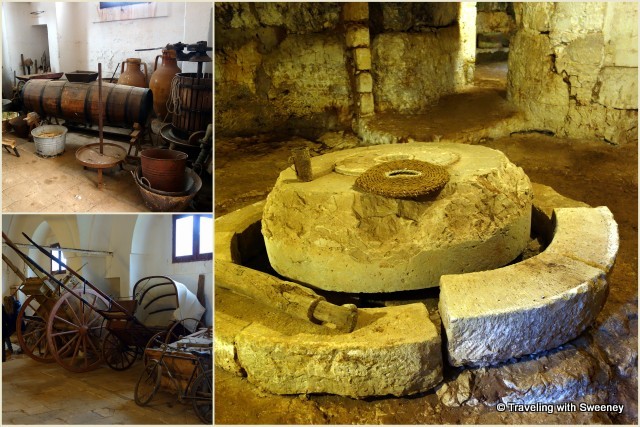
Left — Old masseria artifacts; Right — Inside the underground olive mill
Tasting Puglia
A gastronomic part of tour was a typical southern Italy Mediterranean lunch at Azienda Agricola di Vita Pugliese, a family-run agricultural company, at Masseria Difesa di Malta. Vita, the family matriarch founded the company in 1994 with her husband and has since been using natural foods and recipes handed down through several generations. Two generations of the family own and operate the business preparing and selling traditional Pugliese dishes and food products grown on their 25 hectares of land. The special methods for preparation take place in the masseria’s “laboratory” and produce delicious products distributed among local restaurants, including durum wheat pasta and a wide variety of fruit and vegetable items, particularly tomatoes, olives, and fruit marmalades, all organically produced focusing on water-saving cultivation practices.
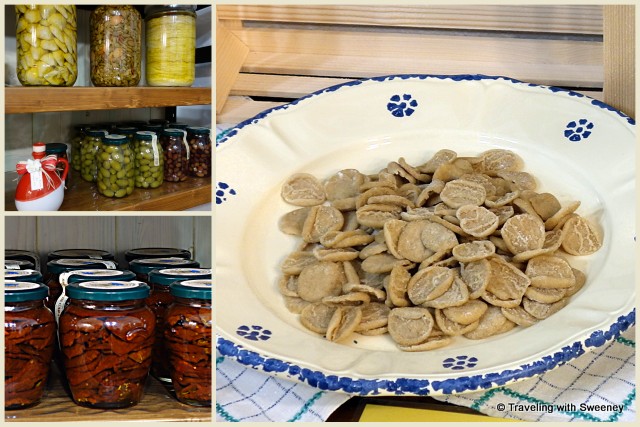
Olive, tomato and pasta products of Azienda Agricola Pugliese
Our lovely lunch consisted of orecchiette (traditional Pugliese ear-shaped pasta), handmade by Vita, and other olive, vegetable, and fruit specialties.
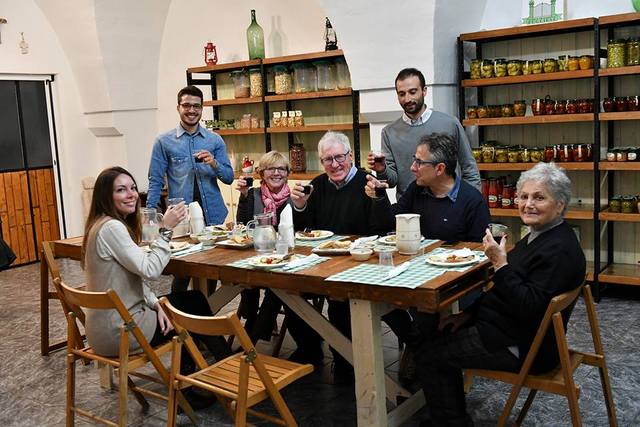
Lunch at Azienda Agricola di Vita Pugliese — Photo by Federica Donadi
Archaeological treasure
A big surprise for us was the Bronze Age Dolmen (“stone table”) of Montalbano on the Via Traiana in the park which dates back to the 3rd – 2nd century BC. It’s said it was used to the worship the dead and for other ceremonies of those times.
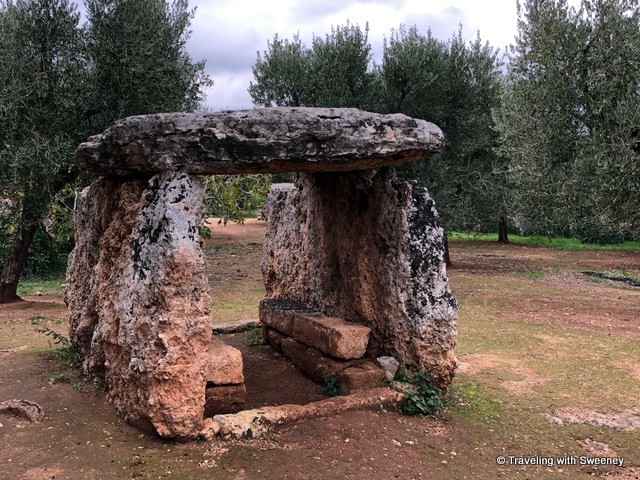
Bronze Age Dolmen of Montalbano
The wetlands
The wetlands of the Morelli River include ponds and reservoirs that have been used for fishing since the 1800s. The river, fresh water springs, and fossil dunes (formed thousands of years ago) of the park’s coastal wetlands are also home to rare and endangered species of migratory birds who stop here to reproduce.
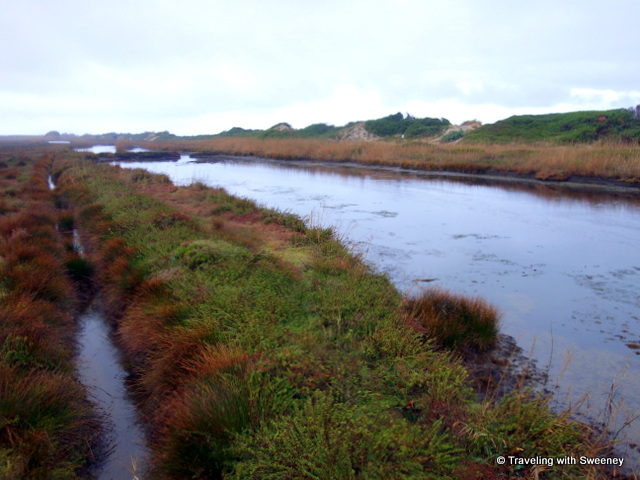
The wetlands of Dune Costiere
The old fish farming plant in the park has been restored by area families who operate traditional farming of eels and grey mullet through organic methods of fish farming. The fishing is done only in December using gill nets and fish traps. During fishing season, the park offers guided tours of the plant and wetlands.
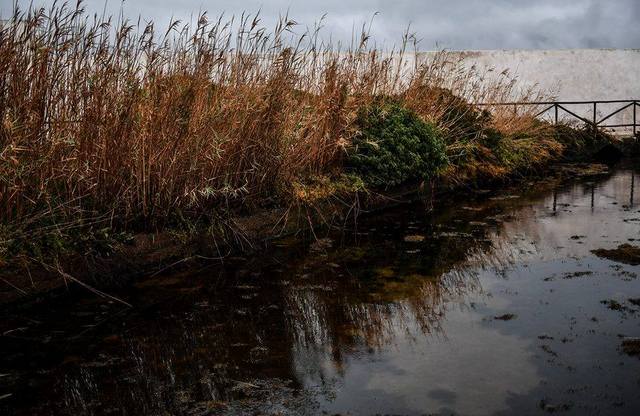
Fishing farm and plant building n the Morelli River — Photo by Federica Donadi
Looking dramatic on this mid-November day (shown below), the sandy beaches of the Adriatic coast are filled with vacationers enjoying sun and surf in summer. Gianfranco and his staff work diligently to educate about sustainable tourism and implement programs to protect the ecosystems of the wetlands and keep the beaches free of debris and damage.
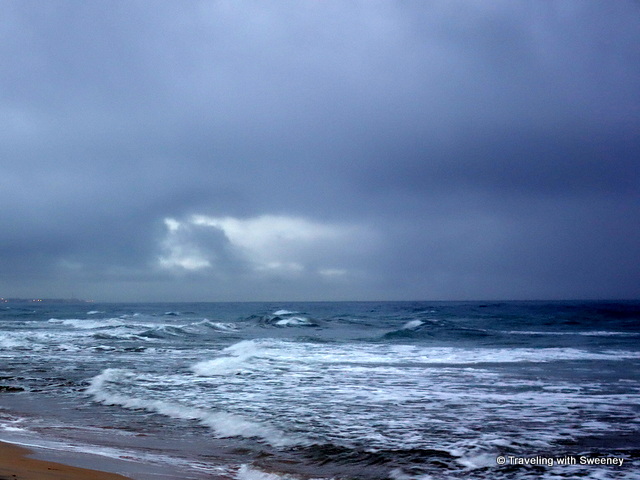
Dramatic off-season Adriatic Sea
I highly recommend visiting the park and their partners when you visit Puglia. Enjoy tastes and activities of the region, meet some wonderful people, and “live your park” with respect for nature.
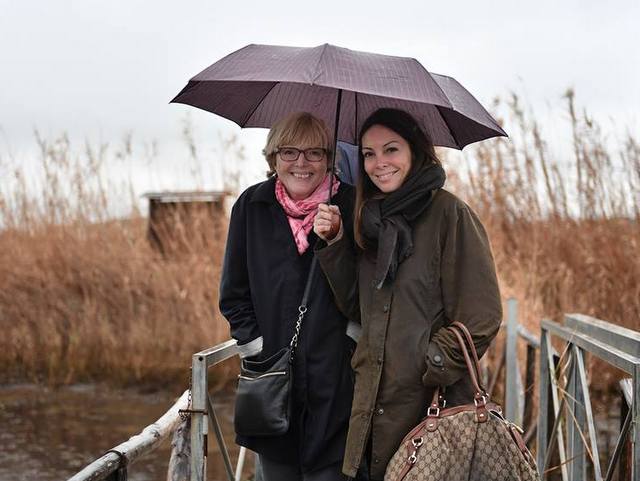
With Elena Benassi at the Dune Costiere fish farms — Photo by Federica Donadi
Thanks to Elena, our host in Ostuni, and the staff and local partners of Parco Naturale Regionale Dune Costiere for the tour and hospitality.


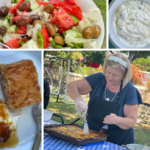
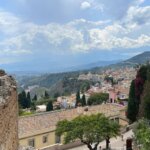
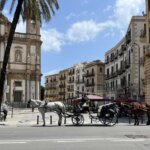
Thx for this look at the park of Puglia. I always think of it as being an urban centre, and didn’t realize there is a wonderful nature park to experience while in the area.
I am not at all familiar with Puglia and this part of Italy. Love those ancient olive trees! Have to see them in person and eat those Italian good eats! Bronze Age Dolmen is the icing on the cake. What a day you must have had.
The landscape looks fascinating and the rocks very strange and contorted like those twisted olive trees. I bet the food scene must be really amazing and that pasta looks delicious.
Thanks for sharing your explorations in Puglia. Can’t wait to follow in your footsteps!
I love that picture of you and that enormous olive tree. I had no idea they grew that big. This would be such a cool thing to do. I am becoming very fond of olives now. I never really appreciated them, but slowly been won over by the various sweet ones they serve at tapas bars and my husband incorporating them into dishes. I keep telling him l want to go to Puglia, maybe next time we visit his family, we can sneak off for a visit. 🙂
We’re headed to Puglia in May and really looking forward to trying some olives. And everything else there is to see and eat there.
What a wonderful place! You’ve whet our appetite in more ways than one. Congratulations on your Silver Award for this lovely story~
Pingback: Racconti di viaggio: Il Parco Dune Costiere e l’Albergabici – Cooperativa Serapia